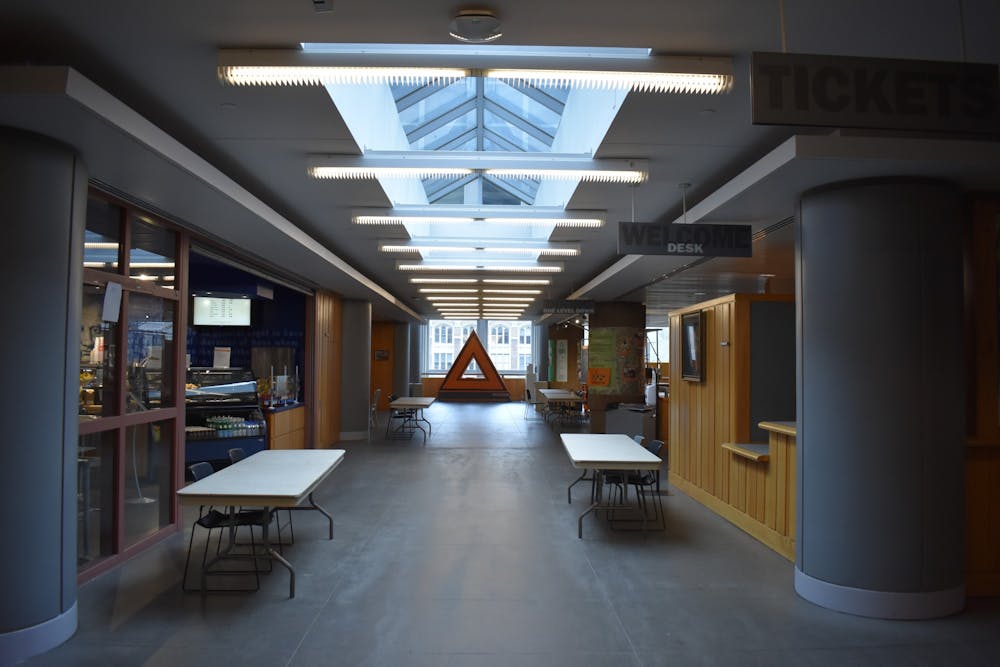I’ve grown to dread finding a Doodle poll in my inbox. I appreciate the thoroughness, but I’d rather not spend my mornings engaging in game theory to figure out how to influence the meeting time in a way that simultaneously allows me to attend and doesn’t add one more 4 a.m. meeting to my calendar.
In order to respect international students’ unique situations, club meetings need to be more thoughtfully scheduled, and the suffering of late-night and early-morning meetings needs to be distributed more evenly. This term, we’re facing the unprecedented challenge of creating a virtual university experience that balances the needs of students on the east coast and the west coast, and in Europe, Africa, and Asia. Despite living in Singapore, a full 12 hours off eastern time, I admit that I’ve been relatively lucky in this regard. Based on my class schedule, I get six full nights of sleep, and stay up all night on the seventh night. But an over-reliance on programs like Doodle and WhenIsGood has created inequities when it comes to co-curricular programming.
The concept of using a program like Doodle or WhenIsGood is that a weekly club meeting should take place at the time when most club members are free. But students are using different standards to mark the calendar. A student on the east coast may mark their availability from 11 a.m., after waking up, to around 8 p.m., when the times of the day when they are willing to meet are over. If a student in Singapore or India were to do that, they would effectively be counting themselves as a non-factor in the poll and possibly nudging the time closer to the 4 a.m. death hour. Instead, international students extend their working hours from 6 a.m. to around noon in their respective time zones. Invariably, the meetings congregate around the extremes of that schedule, sometimes leaving a mere six hours of sleep in the interim.
Consider 11 a.m. eastern time, which is 11 p.m. in Singapore, 5 p.m. in Paris, and 8 a.m. in California. It seems like an ideal time to meet. However, meetings still congregate around the 6 p.m. ET slot — midnight in Paris and 6 a.m. in Singapore, due to campus traditions of evening club meetings and a desire not to wake Americans up too early.
Sometimes a single meeting time really doesn’t work for everyone involved, even accounting for time differences. In this case, the most equitable thing to do is to vary the meeting time by week. Let’s be clear about what this means. It doesn’t mean that sometimes international students have a meeting at 10 p.m. and other times at 4 a.m. It means occasionally (maybe at a frequency proportional to the number of international students in the group) waking Americans up at 7 a.m. so that the time is comfortable for students in other countries.
Waking the more numerous Americans up at an unseemly hour seems to offend us. It seems rather anti-utilitarian for the many to sacrifice for the few. But, the suffering should be distributed. It is one thing for an international student to wake up at 4 a.m. one night for the good of one group. It is quite another thing for the same international students to sacrifice their sleep every night for the good of every group.
This is even more true for events open to or required for larger groups such as entire class years or the general Princeton public. You never know who may be sacrificing their sleep to attend. If it happens multiple times, you should vary the time each week. The University could take the lead when it comes to first-year programming. Our College 101 seminars are held at the same time each week, 4:30 a.m. here in Singapore. Some students may choose to watch the recording, but why should the same set of people be forced to watch the recording each time?
Choosing to “catch people up” is not an equitable alternative either. International students shouldn’t have to choose between staying up all night and learning about meetings afterwards through inadequate, one-sentence summaries.

The hard part about planning meeting times fairly is that many international students are willing to wake up at odd times to accommodate their groups. But just the fact that they’re willing to do so doesn’t mean that it’s right that they should have to do so. It is incumbent on group leaders to be aware of this dynamic. It may be simpler to send out a WhenIsGood and stick to that time every week, but real leadership doesn’t turn a blind eye to inequities for the sake of simplicity. Club leaders owe it to their international members and other potential guests to make their events accessible for all.
So unless club leaders can find a meeting time that is not just workable, but also comfortable for the whole group, they need to vary the meeting time by week to work with everyone’s schedule. And yes, sometimes that will include Americans waking up when they don’t want to be awake. As any international student can tell you, it’s a drag, but you get used to it — as long as it’s only every once in a while.
Rohit Narayanan is a first-year from Singapore. He can be reached at rohitan@princeton.edu.









